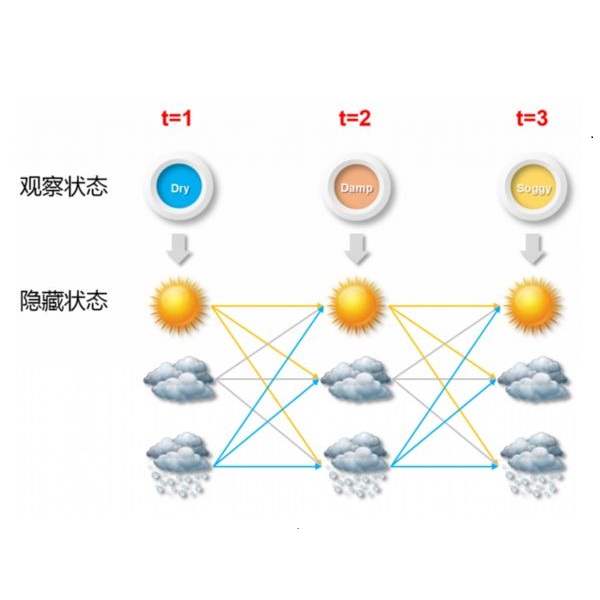Inferring the uncertainties in economic conditions are of significant importance for both decision makers as well as market players. In this paper, we propose a novel method based on Hidden Markov Model (HMM) to construct the Economic Condition Uncertainty (ECU) index that can be used to infer the economic condition uncertainties. The ECU index is a dimensionless index ranges between zero and one, this makes it to be comparable among sectors, regions and periods. We use the daily electricity consumption data of nearly 20 thousand firms in Shanghai from 2018 to 2020 to construct the ECU indexes. Results show that all ECU indexes, no matter at sectoral level or regional level, successfully captured the negative impacts of COVID-19 on Shanghai's economic conditions. Besides, the ECU indexes also presented the heterogeneities in different districts as well as in different sectors. This reflects the facts that changes in uncertainties of economic conditions are mainly related to regional economic structures and targeted regulation policies faced by sectors. The ECU index can also be easily extended to measure uncertainties of economic conditions in different fields which has great potentials in the future.
翻译:经济条件的不确定因素对决策者和市场参与者都具有重大意义。在本文件中,我们提议了一种基于隐藏马可夫模型(HMM)的新颖方法,用以构建经济条件不确定因素(ECU)指数,可用于推断经济条件不确定因素。ECU指数是零和一之间的一个无维指数范围,因此在各部门、地区和时期之间可以进行比较。我们使用2018年至2020年上海近20 000家公司的每日电力消费数据来构建ECU指数。结果显示,ECU指数无论在部门一级或区域一级,都成功地捕捉到COVID-19对上海经济状况的负面影响。此外,ECU指数还介绍了不同地区和不同部门的差异性。这反映了经济条件不确定因素的变化主要与区域经济结构和各部门面临的定向监管政策有关的事实。ECU指数还可以轻易扩展,以衡量未来具有巨大潜力的不同领域的经济条件的不确定性。




